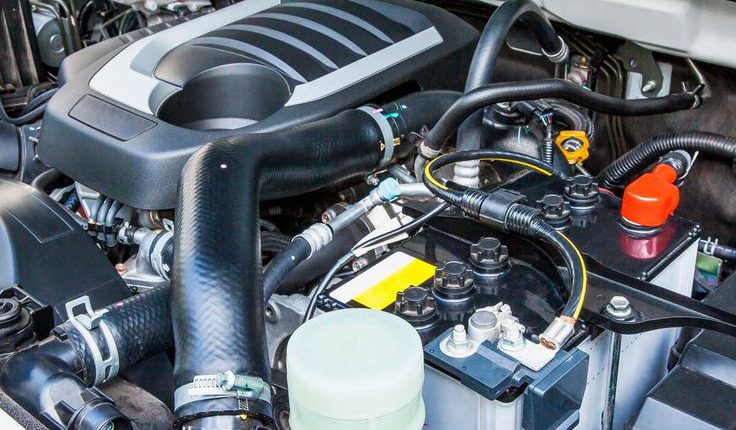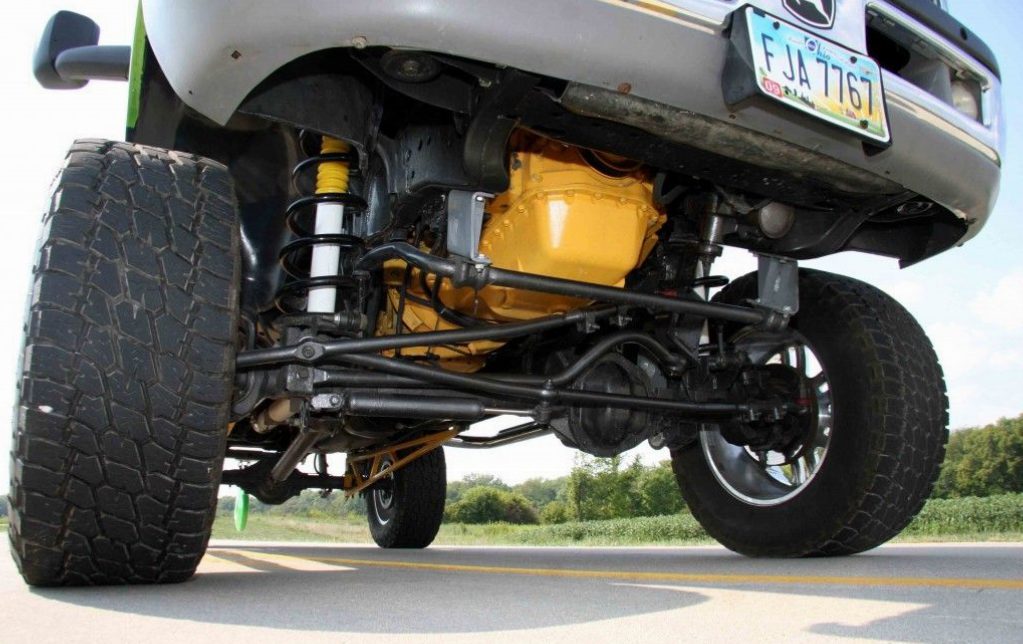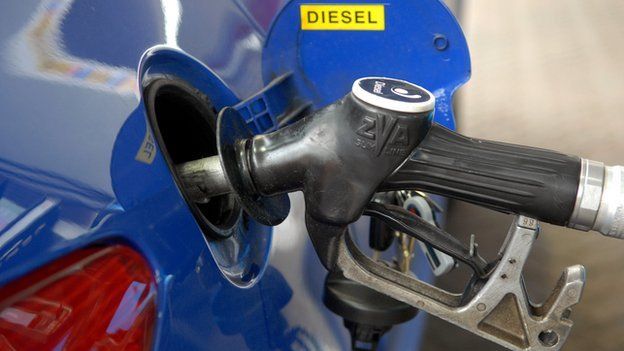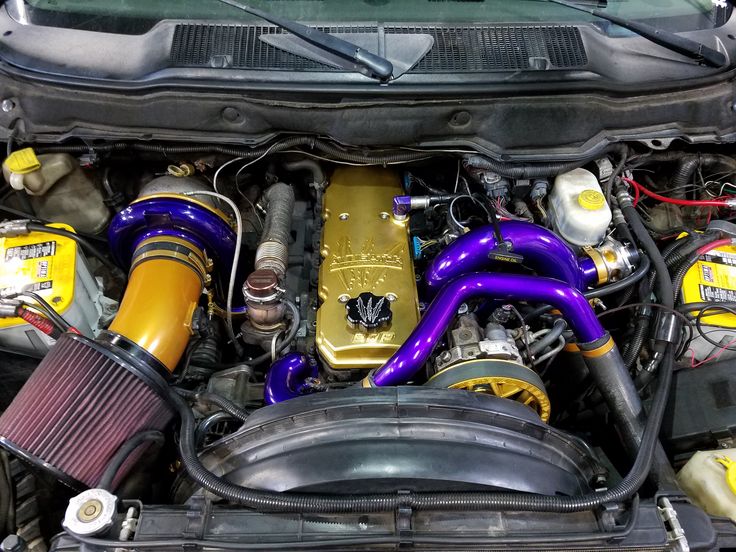Diesel engines related myths “Diesel engines last so long”. This myth was formed a long time ago, however, this issue is constantly questioned and debated by many drivers. Why do diesel engines last longer than gasoline engines? Let us break it down, and compare the diesel and gasoline engines. From that, we will answer the question and make it clear!
Contents
How Does A Diesel Engine Work?
For some car owners, diesel engines seem to not be a smart option. Loud, smelly, and heavy are the characteristics that seem anyone can point out at mentioning diesel motors. However, it is undeniable that cars with diesel engines are still very popular – especially with experienced motorists. In the framework of this article, we will find out shortly how diesel engines work to know the idiosyncratic marks of this motor.
A diesel engine is a type of internal combustion engine, different from a gasoline engine. Combustion of the fuel, i.e. diesel, occurs in the combustion chamber when the piston approaches the dead point during the compression stroke, which is spontaneous combustion under the influence of high temperature and pressure of the compressed air.
In diesel engines, the operating cycle starts with clean air being drawn into the cylinder, not a fuel-air mixture as in conventional gasoline engines. The movement of the piston compresses the air, heating it to a high temperature. As the piston nears the top of the cylinder, fuel is injected under high pressure through the number of precision machined holes in the tip of the fuel injectors. At that time, the fuel enters the engine in the form of a fine spray. Spontaneous ignition takes place without the need for a spark and rapid expansion of the combustion mixture increases the pressure in the cylinder, forcing the piston down and powering your vehicle.

How Long Do Diesel Engines Last?
If you want to buy a car with features like reliability, sturdy and high lifespan, diesel engines can be a good choice for you. Why did we say that? Can you guess about the average lifespan of a diesel engine? The truth was revealed, vehicles equipped with gasoline engines can run about 250,000 – 300,000 miles before needing a major overhaul or a completely new car. And you can be surprised when knowing that diesel engines can last for up to a whopping number:1,500,000 miles before it reduces their performance.
From that number, we can estimate that, if well maintained, diesel engines can operate for about 30 years. Of course, the longevity of diesel motors will depend on many factors like any engine. How well you maintain the engine, your driving styles, and other external factors…All of these will decide the lifespan of diesel engines.
>> Related post: 10 Tips to Prolong The Lifespan of Diesel Engines
Why Do Diesel Engines Last Longer Than Gasoline Engines?
Based on the numbers in the above part how long does diesel last? You can see that diesel engines can last almost twice as long as gasoline engines if well maintained. As a result, types of diesel are known for their longevity, with engines that typically last longer than the rest of the vehicle. Why do diesel engines have such a big difference like that? Let’s find out:

Diesel fuel has very good lubricating
Diesel is a light oil and when burned and used as fuel by the vehicle. It lubricates the parts of your engine. Diesel is one of the fuels that can only evaporate at high temperatures (ranging from 175 – 370 degrees Celsius), contributing to limiting engine wear during use. As we all know, gasoline is a solvent. Any gasoline that hasn’t been burned tends to break the oil from the cylinder walls, making it more serious wear. Diesel fuel is a light oil, it can reduce the viscosity of lubricating oil, but not to the same extent as gasoline.
Because gasoline doesn’t have the ability to lubricate very well ( gasoline is considered an excellent cleaner), over time it can make more wear and tear on your engine. Proven diesel fuel has better lubricity above the piston rings in the combustion chamber. And the process of wear in a cylinder takes place slower than in gasoline engines because diesel fuel is essentially a distillate fuel. Thanks to its outstanding lubricating properties, diesel engines have a better life than gasoline engines.
Design of a diesel engine
It can say there are a lot of differences in the design of a diesel engine that is going to allow it to run longer than a gasoline engine. A diesel engine is a great example of engineering capacity. The components of this engine are generally stronger than gasoline engine parts. The design of a diesel engine is gear driven so unlike the other parts, the gear can be easily fixed and never lose its timing. In diesel cars, use gear-driven water and oil pumps to overcome the risk of major components falling. Whereas gasoline engines use timing belts, pumps, chains, and other components that can easily wear and break frequently.
In addition, diesel engines have a fuel injector and also great self-cooling which will minimize the chance of overheating. Compared with gasoline engines, diesel engines are supposedly 1.5 times more powerful. Because diesel engines often have a higher compression ratio, maintaining better operating efficiency over time. It is not uncommon for diesel vehicles to exceed the 1.2 million miles mark on the speedometer and still operate smoothly.
Diesel engines run at lower RPMs
If you own a car with a diesel engine you will notice that the red line on the tachometer is much lower than the petrol engine. The red line displayed on the gauges of diesel engines usually does not exceed 4500 RPM, this figure is only nearly half that of gasoline engines. Why does it happen? Diesel engines tend to have low RPMs because they have a longer and heavier stroke. With bigger strokes, they can produce a lot of torque. To make it clear, we will summarize 3 reasons cause RPMs in diesel engines be lower:
- Having a longer stroke length.
- Diesel engines are designed heavier.
- They are powered by compression.
The higher revving, the faster things will break and wear. So we think you had an explanation why a low RPM engine usually lasts much longer than a high redline engine because the driver cannot spin the engine beyond 4500 RPM.
Unlike gasoline engines, diesel engines of the same capacity and number of cylinders always dominate in torque – especially at the top of the engine range. With a structure of four in-line thicker cylinders, the diesel engine easily achieves a torque of over 450 Nm from just around 1,500-1,800 rpm. Meanwhile, to achieve this level, the gasoline engine will need to go to a 4.7L V8 (if not using a turbocharger system), but also from 3,400 rpm or more – meaning much later.
>> Related post: Wondering “Why Are Diesel Engines Noisy?” The Reasons
Is diesel better than gas?
From the above analysis, we can see that the diesel engine has a longer life than the gas engine. So that means that the diesel engine will be better than the gasoline one. Although more fuel-efficient and more durable, diesel engines are still not the first choices of drivers. Why? Let’s briefly list some advantages and disadvantages of diesel engines compared to gasoline engines:

Advantages of diesel engines over gasoline engines
- Diesel engines are safer because diesel does not ignite at normal temperature, so there is less danger of fire than gasoline engines.
- In addition, diesel engines are less prone to breakdowns than gasoline engines due to the absence of carburetors and spark plugs.
- At the same time, diesel engines have better load-carrying capacity than gasoline engines.
About the disadvantage:
- Compared to gasoline engines, diesel engines have a heavier weight and higher manufacturing costs due to their higher compression ratio, which requires more engine parts.
- Repairing parts of diesel engines requires specialized machines, high-quality tools, and highly qualified technicians.
- Because they are heavier and have a higher compression ratio, diesel engines often have a lower redline than gasoline engines. The result is that diesel engines have high torque instead of high power, causing slower acceleration.
The above disadvantages are only historical, explaining why diesel engines were not chosen by the majority in the first place. Currently, as technology develops, companies gradually eliminate or limit the above disadvantages, making diesel engines more suitable.
So we can’t affirm “Is diesel engine better than the gas engine” or vice versa. Based on the difference in operating principles between the two types of gasoline and diesel engines. You can make the decision to choose the right car for you. Because each version has its own strengths or limitations.
>> Read more: Why are Diesel Engines Used in Heavy Vehicles? The Epic Reasons
Useful Tips To Make Diesel Engines Last Longer
Although diesel engines are rated as more durable than gasoline engines. In order for diesel engines to operate at maximum efficiency, drivers need to adhere to maintenance guidelines:
Use the correct diesel for your vehicle
Maintenance of diesel engines has some little differences compared to gasoline engines when changing oil for diesel engines. Drivers need to change the right type of oil according to the vehicle’s specifications to limit unnecessary damage. To know the right lubricating oil for your car. You can refer to the user manual or you can go to reputable maintenance centers. Where technicians will advise you on the best oil for your vehicle.
Change oil filter periodically
Over time, dirt will accumulate and clog the oil filter. The consequence is that dust will follow the oil to the engine parts, directly affecting the operation of the engine. Therefore, periodic inspection and replacement of the fuel filter are essential. According to the manufacturer’s recommendations. You should check the oil filter periodically after 1 to 2 months of use or after 5,000km to 7,000km. Depending on the level of engine operation.
Clean injectors after a certain time
For diesel engines, injectors and lubrication systems need to be cleaned periodically. The inside of the combustion chamber in diesel engines does not use spark plugs to ignite fuel like a gasoline engine. Therefore, the fuel injector always needs to ensure that the injection is smooth and not clogged to increase the ability to explode and direct ignition. With diesel cars, it is necessary to pay attention to cleaning the injectors periodically every 20,000 km.
In addition to the above tips, there will be some notes for you when driving a diesel car in cold weather. Before starting the engine, it is necessary to turn on the electric lock to the drying step. At this time the spark plug will heat the oil from the inside of the combustion chamber to dilute the oil and not freeze. When the drying indicator light on the dashboard turns off, start the engine.
Final Thoughts: Why Do Diesel Engines Last Longer
Reading this far we will probably see that it is no longer a mystery. When we know that diesel engines have a significantly longer life than gasoline engines. However, you will be surprised to know if a well-maintained diesel engine can go over 1 million miles or more. Hopefully, with the information in our article, you will have the necessary information about diesel engines.



